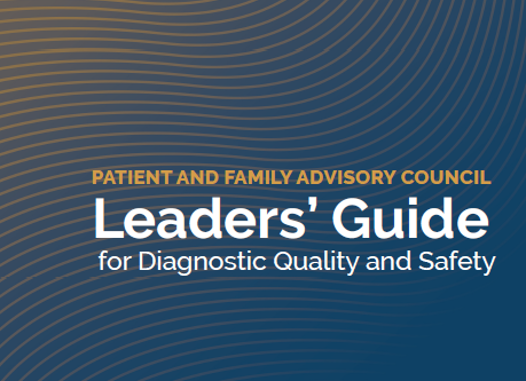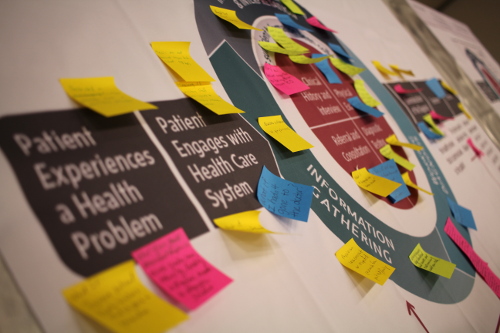Resources for Patients
Patients and family members have a significant opportunity to contribute to diagnostic accuracy and timeliness by actively participating in the diagnostic process. But often, they don't know the questions to ask, the information to offer, or the steps to take to improve diagnosis. At the Society to Improve Diagnosis in Medicine (SIDM), we are focused on raising awareness about the magnitude and impact of diagnostic errors within the patient and consumer communities as well as providing tools and resources to equip these communities to participate in achieving an accurate and timely diagnosis.

Dx IQ Column
Getting it right is so important, and not always easy to do. That’s why SIDM is sharing this series of columns. Our goal is to help you understand how important your role is. We want you to be informed and well-prepared for every kind of medical interaction that leads to a diagnosis.

Patient's Toolkit
The Patient's Toolkit for Diagnosis is a resource created for patients, by patients. With this toolkit, patients can prepare for upcoming appointments, map symptoms, account for medications, and plan for next steps. Available in English and Spanish.

Hear from Patients
Patient stories guarantee the patient voice is heard in efforts to improve diagnostic quality and safety. Hear from patients who have experienced diagnostic error firsthand and see what they're doing to improve diagnosis.

PFAC Guides
SIDM has released two new guides for hospitals and health systems in reducing harm from diagnostic errors. Each guide leverages the lived-experience, insights and expertise of PFACs to help drive change to improve diagnostic quality and safety.

Tell Your Story
Patient stories illustrate the scope and importance of addressing diagnostic error. By sharing your story, you help ensure the voices of patients and their families are heard in diagnostic improvement efforts.

Patients Improving Research
SIDM's Patients Improving Research in Diagnosis (PAIRED) program brings together patient advocates and expert researchers to integrate the patient perspective in research efforts.

